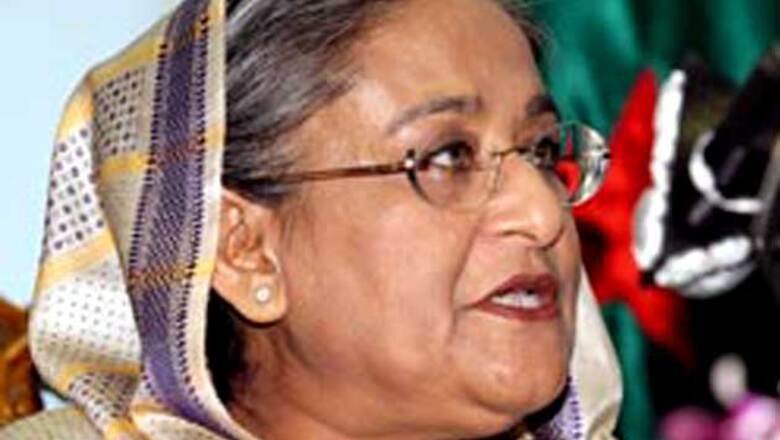
views
Dhaka: A top UN official on Monday termed Prime Minister Sheikh Hasina's dialogue offer to the opposition as a good "starting point" to resolve the current political crisis in Bangladesh, but feared the failure of talks could invite an unwanted scenario. "It is good starting point," visiting UN assistant secretary general Oscar Fernandez-Taranco said, referring to the Prime Minister's dialogue offer to opposition parties to end the ongoing political impasse in the country.
He, however, warned that the "history of Bangladesh" suggests what the consequence could be unless the political leadership could resolve their differences through a constructive dialogue on the electoral system. "The quicker the dialogue starts the easier it will be to find solutions," he said at a press conference on the final day of his four-day Bangladesh tour. Fernandez was apparently referring to the installation of the military-backed interim government in 2006 when the army intervened after the rivalry between the then ruling Bangladesh Nationalist Party and opposition Awami League witnessed an extreme stage ahead of scheduled elections.
The army-backed interim government eventually handed over power to the now ruling Awami League following the landmark 2008 general election which earned it three-fourths majority in the 300-seat Parliament. However, tension reappeared amid growing differences between the two parties over the electoral system with BNP, joined by its crucial fundamentalist ally Jamaat-e-Islami (JI), demanding restoration of a non-party caretaker government for election oversight amending the constitution.
Awami League insists the caretaker government had been proved counter-productive in the past as the army intervened taking advantage of the system, while entrusting non-elected people with temporary state power was contrary to constitution and democratic spirit. The BNP-led opposition alliance staged a series of shutdowns in the past three months also involving issues of 1971 war crimes trial in which top four JI leaders have been convicted, triggering violence that left over 100 people dead.
"The consequence (failure to reach a consensus) is clearly understood by all political actors... the time is running out," Fernandez told reporters at the fag end of his visit when he held hectic meetings with the government and opposition leaders and other major political stakeholder. The senior UN official added: "The people of Bangladesh deserve a solution." Fernandez, who is the assistant secretary general for political affairs, said the first impact would be on the very people of the country and economic opportunity while such setbacks when freedom and aspirations could be compromised.
The UN assistant secretary general, however, said he did not came to Dhaka with a "formula" as the solution to the impasse must be "homegrown" and expected the country to overcome the situation as it overcame "greater challenges" in the past. He said there was a common ground for the solution as all sides he met said they wanted an election which would be credible, peaceful and acceptable to all to continue the country's democratic process. He is set to convey the outcome of his Bangladesh visit to UN secretary general Ban Ki-moon on his return to New York.
He said Bangladesh's high achievements in economic and social sectors must not be frustrated by the political impasse while the UN intended to stand by the country in its crisis as it has contributed significantly to its global peace-keeping missions in other troubled countries. "The UN will continue to remain engaged (in Bangladesh)," said Fernandez who came to Bangladesh for the second time in five months as part of a UN initiative to support democracy there.
He met Prime Minister and Awami League President Sheikh Hasina, main opposition BNP Chairperson Begum Khaleda Zia, their advisors and leaders of their parties separately and also exchanged views with civil society and media figures during the second leg of his mission in Bangladesh.




















Comments
0 comment